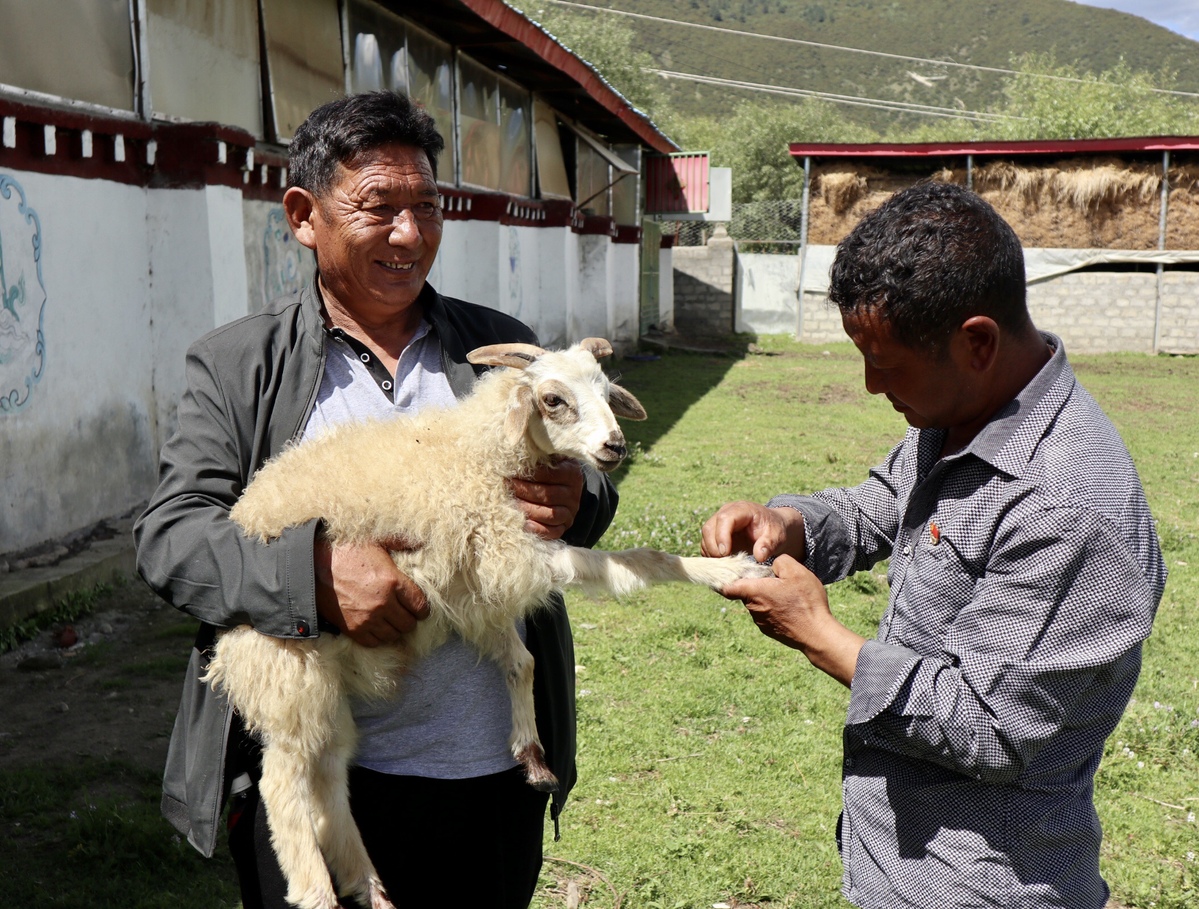Tibet cooperatives played key role in ending poverty


Cooperatives played a vital role in eradicating poverty in the Tibet autonomous region by making farmwork less labor-intensive and at the same time raising the incomes of rural residents, an expert told a webinar on Tuesday.
Dralo, a researcher at the China Tibetology Research Center, praised Tibet's poverty reduction achievements in the past few decades. He was speaking at an online side event of the 46th session of the United Nations Human Rights Council International Webinar on Poverty Alleviation and Culture Preservation in Tibet, which was held at the center in Beijing.
Dralo said the introduction of different cooperatives in different parts of the region had contributed to grassroots social development.
"Cooperatives helped Tibetan rural residents reduce physical labor, so they can spend more time doing part-time jobs to generate more income," he said.
He gave the example of a cooperative in Paljor Lhunpo village, where villagers had spent about 30 days a year cultivating and harvesting crops before the establishment of an agricultural machinery cooperative in 2012. Since then, the amount of time spent on cultivation and harvesting has been slashed by more than two-thirds.
"The cooperative received funds from the government at the beginning, machines were adopted for farming and a few villagers were hired to work for the cooperative," he said.
"Hampered by its geographical location and other factors, Tibet was regarded as one of China's main battlefields against poverty," Dralo said, adding that more than 628,000 residents in the region's 74 counties had been lifted out of poverty by the end of 2019.
He said Tibet's poverty rate was as high as 80 percent in 1951. But it was lowered to 26 percent in 2012 thanks to government investment and improvements to infrastructure.
"Tibet had more than 13,700 cooperatives in its rural areas by the end of 2019 and more than 165,000 families involved in different cooperatives, and the average net income of each participant in the cooperatives reached nearly 10,000 yuan ($1,500)," Dralo said.
Kalsang Drolma, an economist at the research center, told the webinar that education had also played a critical role in poverty reduction.
The regional government has provided vocational training courses for over 150,000 residents and has provided job opportunities for more than 180,000 rural residents since 2016, she said.
- China completes 'power expressway loop' around southern Xinjiang desert
- China defends approach by military aircraft after Japan complaint
- Gansu sets up team to probe abnormal blood lead levels in children
- China publishes Han-Tibetan version of major dictionary
- People advised to guard against dengue fever, diarrhea and other diseases
- Exploring China's Xixia Imperial Tombs with Yuanxi





































